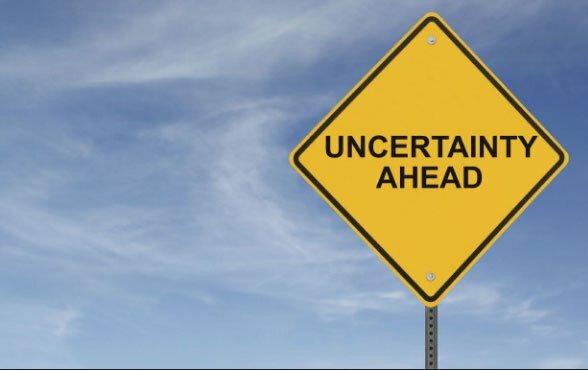
The last few months have proven to be extremely challenging for Hong Kong; first with the political protests and now with the outbreak of the Coronavirus. We are living in unpredictable times, politically, economically and more recently with our physical health concerns.
As a rule, humans prefer certainty to uncertainty. Our ability to understand, predict and control has been critical in our evolution, allowing us to learn from experience and keep us safe. So not knowing what to do next and being unable to predict what’s going to happen in the near future are sure to breed anxiety in all of us – We are hardwired to hate uncertainty.
A few years ago, psychologist Archy de Berker and colleagues conducted an experiment that clearly demonstrated this. They asked 45 volunteers to participate in a simple computer game. Participants were told they needed to over-turn a rock that may or may not have a snake hiding under it. When a snake was present, they received a mildly painful electric shock on the hand, making the participants highly invested in figuring out which rocks hid the snakes. The researchers, on the other hand, made sure that the level of uncertainty fluctuated and remained high throughout the game.
During the game, researchers tracked participants stress levels through pupil dilation, amount of perspiration and asking the participants to report how stressed they felt from moment to moment.
They found that all levels of stress reached a maximum when uncertainty was at its highest. When people had absolutely no idea whether they were about to get shocked, stress peaked. This may seem obvious – everyone knows that uncertainty is stressful – but what’s not so obvious is that uncertainty is more stressful than a predictable negative consequence. Knowing that there was a chance of getting a painful electric shock led to more stress than knowing they would definitely be shocked.
The results of this experiment can be easily related to situations in the real world. The uncertainty of not knowing what’s going to happen in the future makes us anxious. For example, it’s actually more stressful to wonder if you are going to be fired from your job than being relatively sure of it. The same goes for other familiar situations such as waiting for medical results or wondering if you’ll get a promotion.
The political protests and outbreak of the novel coronavirus has sparked fear and anxiety amongst all of us in Hong Kong. Psychological research shows that novel threats raise anxiety levels more than familiar threats.
Although these are challenging times, it is still possible to make small changes in our lives to help us manage our well-being and our worries about the future. The following tips may not help anxiety to go away completely, but they may improve the way you are feeling and give you back a small sense of control.
Engage in self-care
Many of us are stuck working from home, but that doesn’t mean that we need to completely abandon our healthy routines. Try to make an effort to eat well, exercise and get enough sleep. Your gym or regular yoga studio may currently be off limits, but with modern technology you can easily access a workout or yoga video online that you can follow from the safety of your own home. Self Care doesn’t always have to be physical, it’s just as important to engage in activities that relax you such as; taking a long bath or shower, reading, listening to soothing music, doing a mindfulness exercise or journaling
Allow yourself to feel
It may seem better in the moment to try and block out any negative or anxious thoughts you are having, but they will continue to exist whether you are paying attention to them or not. Trying to ignore your feelings will only increase your stress and anxiety. Allow yourself to feel whatever it is you are feeling – If you are having difficulty managing stress and feeling overwhelmed by the current situation in Hong Kong, know that you are not alone.
Talk about your feelings – don’t bottle them up
We have a tendency to isolate ourselves when we’re stressed and worried, but social support can have a huge positive impact on your mental health when you are dealing with uncertainty. Having people to lean on is essential to your emotional well-being. Staying connected to others (whether that be in person or at the very least by phone, face time or office messaging systems) can make a world of difference in your mood and your perception of your stressors.
Seek support from family, friends and colleagues and talk about how you’re feeling. If you are still struggling to cope with uncertainty, seek professional help. A qualified counsellor or psychologist can help you develop healthy ways to cope with your stressors and anxiety.
Stay informed, but be aware of fake news
You can get a lot of false information and anecdotal reports by reading every social media post or news article you come across. Instead of hyper-focusing on which mask to buy or how many rolls of toilet paper you need to stock up on, consider how much information and news you are actually taking in and reflect on how it is affecting you. Is all this information increasing or decreasing your anxiety? Try to accept that there are things that are out of your control, and the best you can do is to follow the guidelines laid out by the experts to keep yourself safe: wash your hands, try and maintain a distance from people who are sick and wear a mask in over-crowded places or if you are sick yourself.

